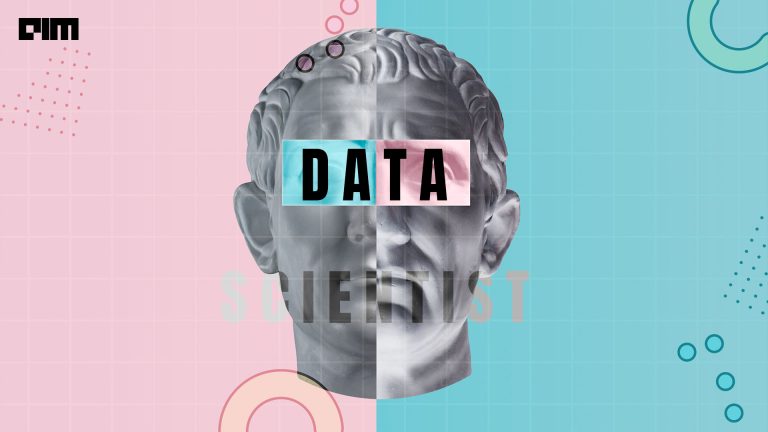The COVID-19 pandemic has forced businesses to rethink their workplace orientation, where the majority of them have transitioned to remote working for almost all their employees. However, this whole culture shift of working from home has brought in some concerns and challenges for the business leaders. One of the key concerns among business leaders that is making them uncomfortable to allow their employees to work from home is the trust factor. Businesses are even critical with their remote workers, especially the ones handling essential business data — data science team. Also, with the complicated job role of data science, the leaders need to build enough trust to share their critical data, tools and processes for them to smoothly carry out tasks.
Remote working also makes the data science team forgotten as well as undervalued; having a strong trustful relationship with your analytics professionals will not only benefit the company but will also enhance the employees’ productivity. One of the biggest reasons for business leaders to not trust in their remote workers is not having the ability to track the accountability of employees’ productivity. Such a situation can lead to leaders micromanaging their employees, which can again hamper the workflows and make them feel cramped and oppressed by their bosses. By strengthening the culture of trust, businesses will allow their remote analytics team to thrive.
In fact, according to a survey on remote working, it has been revealed that approximately 90% of respondents said that they are experiencing a better work-life balance amid this remote working. Alongside, 76% of the respondents stated that their work productivity has increased while working from home, and 78% said they have reduced stress.
Without a doubt, remote working among analytics professionals across several businesses have gained traction, and therefore it has become imperative for companies to work towards building trust among their remote analytics professionals for a better business outcome. Maintaining trust in the conventional workplace is a challenging task, but keeping up the same confidence in a remote environment would be even more daunting. In this article, we would share a few ways leaders can build trust with their remote analytics professionals who handle critical business data:
Communicate Transparently & More Frequently
Communication is the key to build among any relationship, and similarly to build trust with your remote data science team, business leaders need to make a robust communication strategy that is not only transparent but also much more frequent than usual. Communication won’t be beneficial if it isn’t transparent towards the employees where company status and relevant information has been necessarily shared with employees and not provide business surprises amid this crisis. For this, businesses have heavily relied upon collaboration tools like MS Teams, Zoom, Slack, to name a few in order to create two-way communication with their employees smoothly. This is even important for developers and data scientists who deal with massive data and critical workflow which can be tiring as well as demotivating in an isolated environment, and therefore business leaders must communicate regularly for making them feel at ease amid this lockdown.
Also Read: How Analytics Professionals Can Bring Back Their Career On Track Post Layoff
Set Clear Expectations & Work On Deadlines
Another way business leaders can build trust in their remote analytics professionals is by clearly communicating the expectations that the organisation has for them and also creating proper deadlines for adhering. Setting clear expectations and providing a deadline for them to work on a project would monitor the necessity of continuous checking in on the employees and would also assist employees in aligning their goals according to the expectations and deadlines. For this, business leaders need to provide necessary communication to their employees as to what is the business problem that needs to be solved, what is expected out of the data science team, and what is the business goal of the project; these will provide a concrete base for data scientists to work on and would encourage them to consult their seniors if stuck. Alongside, employees also need to understand the importance of the deadline which they need to adhere to for a better business outcome. This would omit the necessity of micromanaging, which brings out the next point.
Also Read: Things That Will Never Remain The Same For Analytics Professionals Post-COVID World
Don’t Micromanage, Give Analytics Professionals Some Liberty
Micromanaging rote data science teams and not giving them enough liberty to work with data can prove to be harmful to businesses. With content questioning and managing constant details of work can reduce the morale of the employees, which in turn hampers their productivity. Instead, leaders should democratise their data as well as their processes and should give enough liberty to analytics professionals to work on projects and bring results for businesses.
Alongside, as data science teams work on critical workflows, chronic management can also distract them and destroy their innovation. Employees should feel trusted and valued for their work and micromanaging every decision made by the employee would hamper that confidence and would make them question their ability to make complex decisions. Rather, business leaders should communicate the work that needs to be done and should wait for the results actually to criticise the practice. This process would make the analytics team confident and independent of constant attention.
Also Read: 76.9% Of Analytics Professionals Are Devoting Their Time On Self-Learning Amid Crisis
Use Employee Management Tool
Instead of micromanaging, one way business leaders can keep a check of the employees’ productivity is by deploying an employee management tool. Managing employees is a difficult task for conventional office spaces, and it gets even painful for leaders to achieve the same efficiency while managing their remote working team. Having an employee management tool will help the leaders to keep a check on their productivity and can also provide regular feedback on their projects. Also, with an employee management tool, leaders can define their work clearly, can set proper guidelines, track and monitor projects, frequently communicate, as well as measure and compare outputs. Some of the employee management tools also allow leaders to keep track of the amount of time spent by analytics professionals on a particular project and the current status of the project, which gives a comprehensive view of their employees’ productivity as well as help them predict their business outcome.
Also Read: How Data Analytics Professionals Should Create A Long Term Strategy For A Successful Career
Get To Know Each Other Besides Work
Lastly, getting to know your analytics employees outside work would allow business leaders to build more trust in them. This is similar to any human bonding, the more time you spend with somebody, the more you end up trusting that person. And therefore, leaders can use those collaboration tools to get into a conversation with their data science team members to actually know them personally, which in turn make their work process smoother, as well as fun. Alongside, businesses can organise casual virtual meetings with their team members to break out from work and also encourage them to keep a balance with their personal life. Data science is usually a challenging and complex job role which can be very tiring for professionals mentally, and that’s why having casual chats can help them come off that monotony and would also enhance their productivity successively. A casual conversation frequently among team members would indeed help in bringing the team together.





















































































